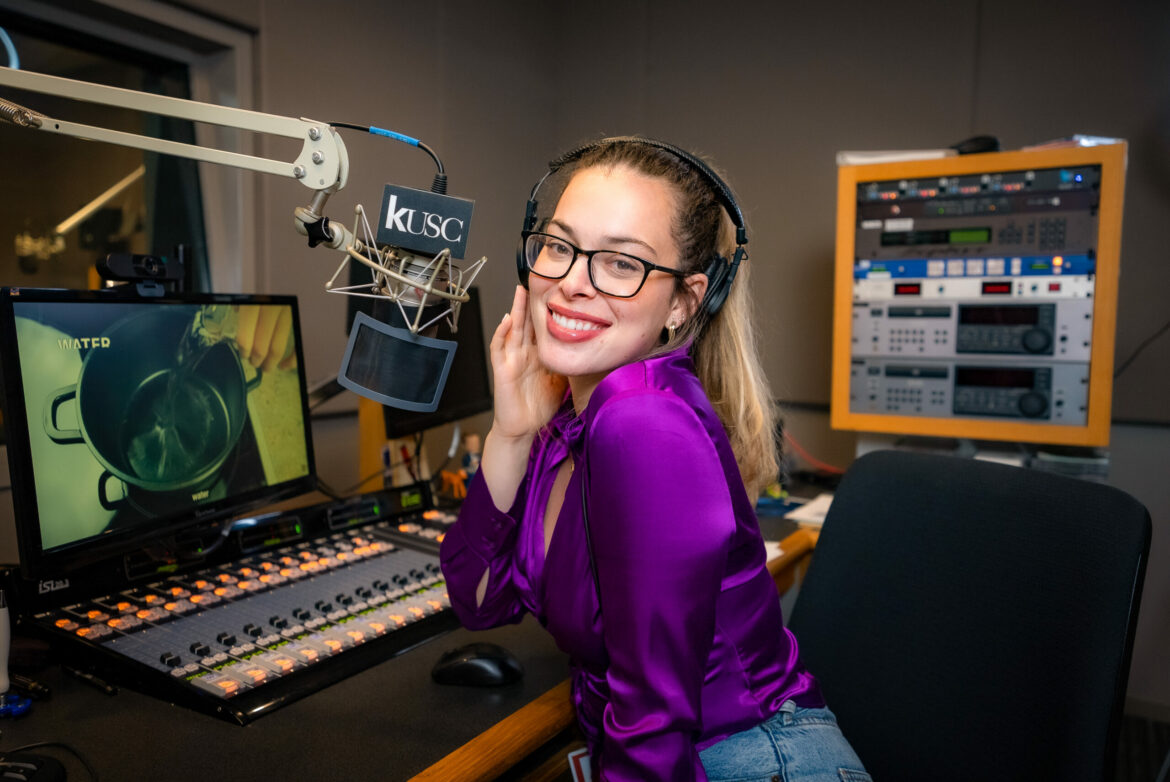New Classical California stream brings Latin-influenced music to listeners

Nuestra Música host Brisa Siegel
Classical California is aiming to reflect broader diversity in classical music with Nuestra Música, a new stream in both Spanish and English that highlights Latin-influenced pieces within the format.
Classical California’s stations, KUSC in Los Angeles and KDFC in San Francisco, already include Latin-influenced music on their broadcasts. But by offering a stream through its app and website, Classical California can provide a focused mix of music to appeal to the state’s Latino communities.
“There are more voices in classical music that need to be shared, and it’s part of our desire to reflect this,” said Mark Steinmetz, KUSC’s VP of content.
Brisa Siegel, who hosts Nuestra Música in both Spanish and English, was hired as a host-trainee at KUSC last year to develop hosting skills and create digital content. Siegel, who describes herself as half Dominican and half Jewish, grew up surrounded by classical music. Her dad, a jazz musician, and her mom, a classical singer, created a space where “music was like a third language,” Siegel said.
“I love how music is so powerful to us in terms of our emotions, how we feel, how we process things, how sometimes things are really hard to say or acknowledge within ourselves,” Siegel said. “Then music kind of just opens those doors for us.”
Siegel saw hosting Nuestra Música as an opportunity to share that feeling. To make the music even more accessible, she wanted to create bilingual versions of the stream for anyone who wanted to enjoy and learn more about Latin-influenced classical music.
“This is really going to make people feel accepted and included and like they’re a part of this beautiful genre, too,” Siegel said.
Expanding selections
The English and Spanish streams feature the same playlists, but pieces play at different times. So far, the Spanish-language stream is drawing about twice as many listeners as its English counterpart.
The streams’ musical selections and prerecorded commentary operate on a loop. Classical California uses Spacial Audio’s SAM Broadcaster Cloud to load songs and voice tracks onto playlists. Though the lists’ loops repeat, the playlists are hours long so listeners are unlikely to hear repeated music. Classical California is adding new music to the streams on a quarterly basis.
The station is marketing Nuestra Música to Spanish-speaking audiences through social media outreach, influencers and digital advertising. It is also highlighting composers featured on the stream as part of Open Ears, a video series about figures in classical music underappreciated during their lifetimes. One segment highlighted Venezuelan musician Teresa Carreño in both English- and Spanish-language versions.
KUSC PD Kelsey McConnell said she hopes to add music from Latin countries to Nuestra Música that aren’t yet represented. She encourages listeners to reach out via social media or KUSC’s feedback page if they want musicians added.
Since its launch Sept. 27, McConnell said, audience feedback about Nuestra Música has been “incredibly heartwarming.” One listener who left a voicemail was emotional because she loved classical music but didn’t know it could come from Spanish-speaking countries.
“To be able to already get that kind of feedback that people appreciate the service but really feel an emotional connection to it, to me, that’s incredibly gratifying,” McConnell said.






That “Spanish” programming is a very unfunny joke. The same few works are repeated and repeated and repeated, ad infinitum, ad nauseam. A lot of the works are standard repertoire such as Mozart that just happened to be played or conducted by artists from Spain or Latin America. Where are the major works of composers such as Heitor Villa-Lobos, Alberto Ginastera, or Silvestre Revueltas, just to name a few, not to mention avant-garde composers of Latin-American origin such as Mauricio Kagel, Mario Davidovsky, Jorge Liderman, Roberto Sierra, or Tania León?